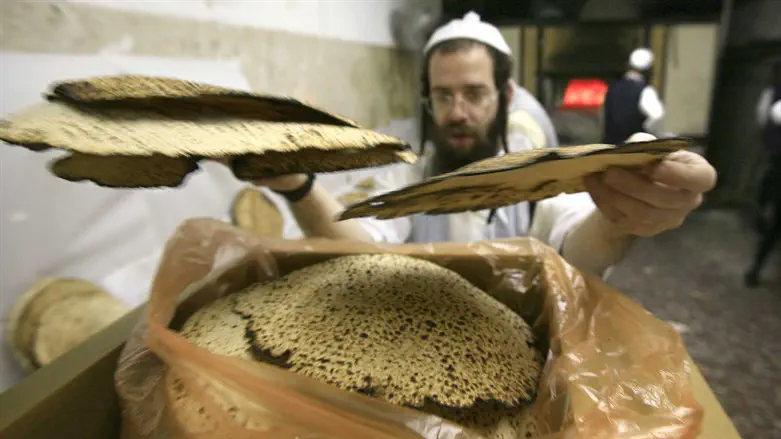
Many questions loom from the recent Pesach departure. Shouldn’t matzah—not chametz—be the year-round required food? Let holiness be stretched out to the maximum, not to a small finite eight-day time period.
In addition, though logically we are following Pesach, an above-nature eight-day holiday that occurred in Nissan, with parsha Shmini, the day in Nissan that witnessed the inauguration of the divinely inspired Mishkan, we see in the parsha how elevated passion brought death to Nadav and Avihu and yet in the Haftarah we find that Michal dies for protesting Dovid’s passion when he returns the ark to the Temple.
How do we understand these seeming contradictions to decipher what’s required of us and what does it inform about the nature and order of the world?
Foundational Growth
The verses in Divrei Hayamim (I 16-17) discuss G-d’s covenant that “He made with Avraham, swore to Isaac…and confirmed in a decree to Jacob…” What are these three stages, and what’s the message? It’s true that we need G-d’s promise to Avraham to last, but what are the words of the verse hinting to? For any growth, the seed must be planted, but it must also be maintained in order to last. It’s a lasting result that testifies to the success of the whole endeavor. Yaakov, the final Av, our symbol in galus, has the word vayamida, to stand and endure, associated with him. This is what we seek: eternal standing.
This phenomenon explains two events where our great leaders either decided against having Moshiach come earlier or were rebuffed. First, in Lecha Lecha (15:11) by the Bris Bein HaBetarim, the verse says, “Vultures swooped down on the carcasses, but Avraham drove them away.” Rashi explains that the bird here refers to Dovid ben Yishai, and Avraham sent it on its way because he was cognizant of the fact that it wasn’t Moshiach’s time yet to bring the geulah and conquer the world. Imagine your father has the key to salvation and decides to push it off. This clearly shows that in truth, we need to grow first into a tested nation before geulah can present itself.
Second, when Moshe asks G-d (Shemos 4:13) to “please send who You usually send.” The simple explanation is that Moshe is rebuffing G-d’s request and requesting that Aharon be chosen as the redeemer. However, Pirkei DeRabbi Eliezer (40:7) says that Moshe is asking G-d to bring Eliyahu for immediate redemption. G-d retorts that Eliyahu’s time is in the end, where the verse (Malachi 4:6) says, "And he shall turn the heart of the fathers to the children, and the heart of the children to their fathers.” This speaks to the process and the need for final unity, but this takes time and can’t surface prematurely.
The Right Kind of Passion
Enter parashat Shmini, and we see notions of quick movements, passion of the heart and the reaching of great heights in a small amount of time. This type of passion that was displayed by Nadav and Avihu ended in mortality.
We know, of course, based on Moshe’s testimony (see Rashi Shemini 10:3) that Nadav and Avihu were considered greater than Moshe and Aharon, but that was relating to their love of G-d, but their fear of G-d was lacking, something that could have tempered their unadulterated passionate cleaving to G-d.
The midrash lists the different possible sins that they performed. A common denominator to all of them was a lack of consultation, speedy decision making and incorrect assumptions.
If we turn to the Haftorah, we find the correct kind of passion displayed. Here, Dovid exudes great passion, in dancing with the holiest vessel of the Mikdash, the Ark, but it is an act of sincerity and purpose. He’s quite right in realizing that the divine ark must return to its sacred home, but it must return with an accompaniment of joy, to symbolize its great impact on humankind. Dovid was so correct that Michal’s judgement of Dovid leads to her death.
Assessing Moshiach
There’s a Gemara (Sanhedrin 98b) that says, “Rav said, the world was created for Dovid. And Shmuel said, for Moses and Rabbi Yochanan said, for Mashiach.” One explanation given for this Gemara is that Rabbi Yochanon’s opinion is applying both Rav and Shmuel’s view in defining Moshiach, highlighting both the passionate avodah of Dovid and the stable foundation of Moshe. It could be that our service needs to match these two elements, on the one hand to grow in a grounded and steady fashion, but to infuse that growth with purposed passion. This can explain why Pinchas is said to be a reincarnation of Nadav and Avihu. Pinchas did act passionately, but within the halakhic realm, ultimately receiving the bris of kehunah.
Conclusion
The high of the Exodus, Yetziat Mitzrayim, was captured by the fact that the Mishkan was built in Nissan and inaugurated on the eighth day, all signs of the metaphysical and spiritual highs. But chametz is our year-round sustenance, as passion can only thrive when surrounded by a strong and consistent foundation.